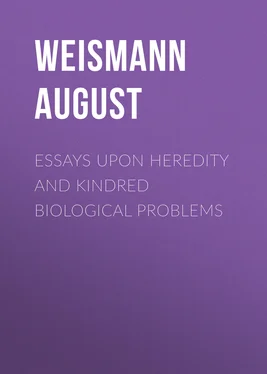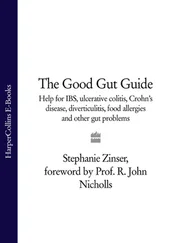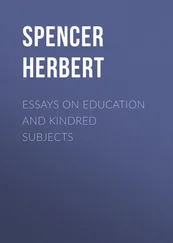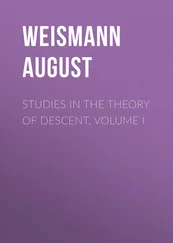August Weismann - Essays Upon Heredity and Kindred Biological Problems
Здесь есть возможность читать онлайн «August Weismann - Essays Upon Heredity and Kindred Biological Problems» — ознакомительный отрывок электронной книги совершенно бесплатно, а после прочтения отрывка купить полную версию. В некоторых случаях можно слушать аудио, скачать через торрент в формате fb2 и присутствует краткое содержание. Жанр: foreign_antique, Биология, на английском языке. Описание произведения, (предисловие) а так же отзывы посетителей доступны на портале библиотеки ЛибКат.
- Название:Essays Upon Heredity and Kindred Biological Problems
- Автор:
- Жанр:
- Год:неизвестен
- ISBN:нет данных
- Рейтинг книги:5 / 5. Голосов: 1
-
Избранное:Добавить в избранное
- Отзывы:
-
Ваша оценка:
- 100
- 1
- 2
- 3
- 4
- 5
Essays Upon Heredity and Kindred Biological Problems: краткое содержание, описание и аннотация
Предлагаем к чтению аннотацию, описание, краткое содержание или предисловие (зависит от того, что написал сам автор книги «Essays Upon Heredity and Kindred Biological Problems»). Если вы не нашли необходимую информацию о книге — напишите в комментариях, мы постараемся отыскать её.
Essays Upon Heredity and Kindred Biological Problems — читать онлайн ознакомительный отрывок
Ниже представлен текст книги, разбитый по страницам. Система сохранения места последней прочитанной страницы, позволяет с удобством читать онлайн бесплатно книгу «Essays Upon Heredity and Kindred Biological Problems», без необходимости каждый раз заново искать на чём Вы остановились. Поставьте закладку, и сможете в любой момент перейти на страницу, на которой закончили чтение.
Интервал:
Закладка:
Insects are not the only animals among which we find inequality in the length of life of the two sexes. Very little attention has been hitherto directed to this matter, and we therefore possess little or no accurate information as to the duration of life in the sexes, but in some cases we can draw inferences either from anatomical structure or from the mode of development. Thus, male Rotifers never possess mouth, stomach, or intestine, they cannot take food, and without doubt live much shorter lives than the females, which are provided with a complete alimentary canal. Again, the dwarf males of many parasitic Copepods —low Crustacea—and the ‘complementary males’ of Cirrhipedes (or barnacles) are devoid of stomach, and must live for a much shorter time than the females; and the male Entoniscidae (a family of which the species are endo-parasitic in the larger Crustacea), although they can feed, die after fertilizing the females; while the latter then take to a parasitic life, produce eggs, and continue to live for some time. It is supposed that the dwarf male of Bonellia viridis does not live so long by several years as the hundred times larger female, and it too has no mouth to its alimentary canal. These examples might be further increased by reference to zoological literature.
In most cases the female lives longer than the male, and this needs no special explanation; but the converse relation is conceivable, when, for instance, the females are much rarer than the males, and the latter lose much time in seeking them. The above-mentioned case of Aglia tau probably belongs to this category.
We cannot always decide conclusively whether the life of one sex has been lengthened or that of the other shortened; both these changes must have taken place in different cases. There is no doubt that a lengthening of life in the female has arisen in the bees and ants, for both sexes of the saw-flies, which are believed to be the ancestors of bees, only live for a few weeks. But among the Strepsiptera the shorter life of the male must have been secondarily acquired, since we only rarely meet with such an extreme case in insects.
Note 7. Bees
It has not been experimentally determined whether the workers, which are usually killed after some months, would live as long as the queen, if they were artificially protected from danger in the hive; but I think that this is probable, because it is the case among ants, and because the peculiarity of longevity must be latent in the egg. As is well known, the egg which gives rise to the queen is identical with that which produces a worker, and differences in the nutrition alone decide whether a queen or a worker shall be formed. It is therefore probable that the duration of life in queen and worker is potentially the same.
Note 8. Death of the Cells in higher Organisms
The opinion has been often expressed that the inevitable appearance of normal ‘death’ is dependent on the wearing out of the tissues in consequence of their functional activity. Bertin says, referring to animal life 25:—‘L’observation des faits y attache l’idée d’une terminaison fatale, bien que la raison ne découvre nullement les motifs de cette nécessité. Chez les êtres qui font partie du règne animal l’exercise même de la rénovation moléculaire finit par user le principe qui l’entretient sans doute parceque le travail d’échange ne s’accomplissant pas avec une perfection mathématique, il s’établit dans la figure, comme dans la substance de l’être vivant, une déviation insensible, et que l’accumulation des écarts finit par amener un type chimique ou morphologique incompatible avec la persistance de ce travail.’
Here the replacement of the used-up elements of tissue by new ones is not taken into account, but an attempt is made to show that the functions of the whole organism necessarily cause it to waste away. But the question at once arises, whether such a result does not depend upon the fact that the single histological elements,—the cells,—are worn out by the exercise of function. Bertin admits this to be the case, and this idea of the importance of changes in the cells themselves is everywhere gaining ground. But although we must admit that the histological elements do, as a matter of fact, wear out, in multicellular animals, this would not prove that, nor explain why, such changes must follow from the nature of the cell and the vital processes which take place within it. Such an admission would merely suggest the question:—how is it that the cells in the tissues of higher animals are worn out by their function, while cells which exist in the form of free and independent organisms possess the power of living for ever? Why should not the cells of any tissue, of which the equilibrium is momentarily disturbed by metabolism, be again restored, so that the same cells continue to perform their functions for ever:—why cannot they live without their properties suffering alteration? I have not sufficiently touched upon this point in the text, and as it is obviously important it demands further consideration.
In the first place, I think we may conclude with certainty from the unending duration of unicellular organisms, that such wearing out of tissue cells is a secondary adaptation, that the death of the cell, like general death, has arisen with the complex, higher organisms. Waste does not depend upon the intrinsic nature of the cells, as the primitive organisms prove to us, but it has appeared as an adaptation of the cells to the new conditions by which they are surrounded when they come into combination, and thus form the cell-republic of the metazoan body. The replacement of cells in the tissues must be more advantageous for the functions of the whole organism than the unlimited activity of the same cells, inasmuch as the power of single cells would be much increased by this means. In certain cases, these advantages are obvious, as for example in many glands of which the secretions are made up of cast-off cells. Such cells must die and be separated from the organism, or the secretion would come to an end. In many cases, however, the facts are obscure, and await physiological investigation. But in the meantime we may draw some conclusions from the effects of growth, which are necessarily bound up with a certain rate of production of new cells. In the process of growth a certain degree of choice between the old cells which have performed their functions up to any particular time, and the new ones which have appeared between them, is as it were left to the organism.
The organism may thus, figuratively speaking, venture to demand from the various specific cells of tissues a greater amount of work than they are able to bear, during the normal length of their life, and with the normal amount of their strength. The advantages gained by the whole organism might more than compensate for the disadvantages which follow from the disappearance of single cells. The glandular secretions which are composed of cell-detritus, prove that the cells of a complex organism may acquire functions which result in the loosening of their connexion with the living cell-community of the body, and their final separation from it. And the same facts hold with the blood corpuscles, for the exercise of their function results in ultimate dissolution. Hence it is not only conceivable, but in every way probable, that many other functions in the higher organisms involve the death of the cells which perform them, not because the living cell is necessarily worn out and finally killed by the exercise of any ordinary vital process, but because the specific functions in the economy of the cell community which such cells undertake to perform, involve the death of the cells themselves. But the fact that such functions have appeared,—involving as they do the sacrifice of a great number of cells,—entirely depends upon the replacement of the old by newly formed cells, that is by the process of reproduction in cells 26.
Читать дальшеИнтервал:
Закладка:
Похожие книги на «Essays Upon Heredity and Kindred Biological Problems»
Представляем Вашему вниманию похожие книги на «Essays Upon Heredity and Kindred Biological Problems» списком для выбора. Мы отобрали схожую по названию и смыслу литературу в надежде предоставить читателям больше вариантов отыскать новые, интересные, ещё непрочитанные произведения.
Обсуждение, отзывы о книге «Essays Upon Heredity and Kindred Biological Problems» и просто собственные мнения читателей. Оставьте ваши комментарии, напишите, что Вы думаете о произведении, его смысле или главных героях. Укажите что конкретно понравилось, а что нет, и почему Вы так считаете.












